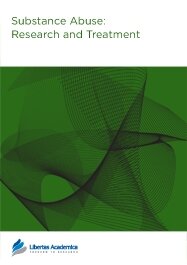

Publication Date: 20 Jan 2009
Journal: Substance Abuse: Research and Treatment

Susan E. Ramsey1,2 and Patricia A. Engler2
1Department of Psychiatry and Human Behavior, 2Department of Medicine, The Warren Alpert Medical School of Brown University and Rhode Island Hospital, Providence, Rhode Island, U.S.
Abstract
Diabetes Mellitus is a serious chronic disease, affecting an increasing number of individuals worldwide. Adherence to diabetes self-care behaviors is key to the successful management of the disease. At-risk drinking is common among diabetic patients and is associated with inferior diabetes treatment adherence and outcomes, resulting in increased mortality and morbidity. Furthermore, individuals with diabetes who engage in at-risk drinking are also in danger of incurring the negative consequences of at-risk drinking found in the general population. Research suggests that alcohol use screening and intervention do not commonly occur during the course of primary care treatment for diabetes. While methods for reducing alcohol use in this population have been largely unexplored to date, brief interventions to reduce at-risk drinking have been well-validated in other patient populations and offer the promise to reduce at-risk drinking among diabetic patients, resulting in improved diabetes treatment adherence and outcomes.
PDF (200.18 KB PDF FORMAT)
RIS citation (ENDNOTE, REFERENCE MANAGER, PROCITE, REFWORKS)
BibTex citation (BIBDESK, LATEX)
This is the first time we published an article in Substance Abuse: Research and Treatment, and we were pleased to find that the publishing staff were extremely helpful in guiding our submission through all the hoops. More important they answered our concerns without delay and where necessary made changes in the page proofs in accord with our wishes. I have published upwards of 80 or 90 articles, chapters and edited volumes, and I have ...

All authors are surveyed after their articles are published. Authors are asked to rate their experience in a variety of areas, and their responses help us to monitor our performance. Presented here are their responses in some key areas. No 'poor' or 'very poor' responses were received; these are represented in the 'other' category.See Our Results
Copyright © 2013 Libertas Academica Ltd (except open access articles and accompanying metadata and supplementary files.)
FacebookGoogle+Twitter
PinterestTumblrYouTube